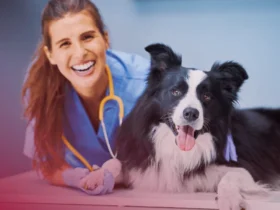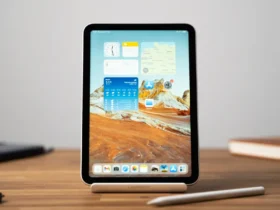An open house can feel like speed-dating for your future. You meet faculty, students, and staff in rapid succession—then go home with a phone full of notes and a stack of handouts. The real work starts after the event. Here’s a practical system to turn quick chats into auditions, internships, shadow days, and long-term mentorships.
1) Capture, Sort, and Personalize Within 48 Hours
Block one focused hour the day after the event to organize everything. Create a simple tracker (name, role, email/social, where you met, what you discussed, promised follow-ups, due dates). Add one personal detail for each contact (their ensemble, a project they mentioned, a plugin they love). That single sentence fuels a warmer first message than “Nice to meet you!”
2) Send “Two-Sentence” Follow-Ups
Overlong emails get parked for later (and forgotten). Use a tight structure:
- Line 1: Context + gratitude (“We spoke after the live sound demo about monitor mixes.”)
- Line 2: Clear next step (“Could I shadow a soundcheck next month? I’m free Fridays 1–4.”)
Attach one relevant artifact (resume link, 30-second reel, or one-page doc). Keep it skim-friendly.
3) Propose Shadow Days With Specifics
Instead of “Can I shadow you sometime?”, pitch one concrete scenario: “I’d love to observe patching and line check for your student showcase on the 15th—happy to coil cables and stay out of the way.” Include availability, what you’ll do (observe + light support), and how you’ll behave (non-disruptive, NDA if needed). Professionals say yes to clarity.
4) Turn Conversations Into Informational Interviews
If someone’s work intrigues you, ask for 15 minutes on Zoom. Offer 3–4 precise questions in advance (e.g., “How did you land your first mix clients?” “What portfolio pieces mattered most?”). Close by asking, “Is there one project where a motivated student could help for 5–10 hours?” Small gigs often follow good questions.
5) Bring Value Early (Fast Favors Strategy)
Before you ask for anything big, offer something small and helpful: edit captions for their short performance clip, clean up a session vocal, design a one-sheet, transcribe a solo. Keep the task time-boxed (under 60 minutes) and deliver fast. Reciprocity is a real engine.
6) Use Socials Like a Professional, Not a Fan
Follow their official profiles and engage with substance—comment on arrangement choices, ask about mic chains, share a timestamped compliment (“Breakdown at 1:12 is fire—love the parallel comp on snare”). Save DMs for logistics. Publicly signal-boosting their work is a credible way to stay on their radar.
7) Convert Contacts Into Collaborators With a Micro-Project
Propose a 7-day sprint: a two-song live session, a short scoring cue, or a one-take studio performance. Define roles, deadlines, and deliverables on one page. Ship it, publish it (with permissions), and tag your collaborators. Finished artifacts beat vague intentions every time.
8) Ask for Mentorship the Smart Way
Don’t lead with “Will you be my mentor?” Start with a 30-day plan and request a single check-in: “I’m building a three-track EP and release plan by May 1. Could I get 15 minutes of feedback midpoint?” If it goes well, ask for a second touch. Mentorship often grows from a sequence of successful micro-asks.
9) Build a Repeatable “Touch Cadence”
Contacts cool when months pass without a word. Set a recurring reminder: light touch every 4–6 weeks. Share progress (“Here’s v2 of my mix after your EQ note”), a useful link (relevant tutorial, grant listing), or a quick win (clip of the track you discussed, now released). Keep it brief and valuable.
10) Link Open House Staff to Real Outcomes
Admissions and career teams know who’s hiring, rehearsing, or showcasing. Send a concise note summarizing your goal and one artifact that proves readiness. Example: “Goal: assist in live sound once/week. Artifact: 90-second video patching/line check at a campus venue. Availability: Thu/Fri afternoons.” Gatekeepers help when you make placing you easy.
11) Document Every Win (Your Proof-of-Work Reel)
Create a living portfolio that grows with each interaction: short project summaries (goal, role, tools, outcome), links, and two sentences on what you learned. When you follow up in the future, include the most relevant new artifact—evidence that their advice turned into action.
12) Practice Clean Professional Etiquette
Confirm times, show up early, bring your own headphones, label files, follow recording rules, and avoid posting behind-the-scenes without permission. After any shadow day or feedback session, send a same-day thank-you with one insight you’ll apply immediately. Reliability is a brand.
13) Protect the Relationship With Boundaries
If a contact goes silent, don’t chase weekly. Space touchpoints, vary the value you offer, and rotate to other leads. Relationships compound over semesters, not days. Play the long game.
A 14-Day Action Plan After the Open House
- Day 1–2: Organize contacts, send two-sentence follow-ups, post one thoughtful recap on LinkedIn/Instagram.
- Day 3–5: Book one informational interview and pitch one shadow day.
- Day 6–10: Ship a micro-favor for someone you admire; start a 7-day micro-project with peers.
- Day 11–14: Publish the micro-project, tag collaborators, and send brief updates to your warmest contacts.
Open houses start conversations; your systems create opportunities. With timely follow-ups, value-first gestures, concrete proposals, and consistent artifacts, you’ll turn handshakes into credits, internships, and trusted mentors. This is the heart of networking at music school—not collecting contacts, but building momentum together.










